
ASEF Junior Fellow Milena Zupanc Successfully Concludes Research Visit to Slovenia
We are proud to announce that Milena Zupanc, an ASEF Junior Fellow from the Visit Slovenia programme, generation 2025, has successfully concluded her research stay in Slovenia. Milena began her Nursing studies (for secondary-level nurses) at the University of Buenos Aires (UBA) and continued her education to become a Registered Nurse at the University of the Italian Hospital of Buenos Aires. In December 2024, she presented her thesis titled “The Presence of Celiac Disease in the Legislation and Curricula of Nursing Studies in Argentina” completing her academic education.
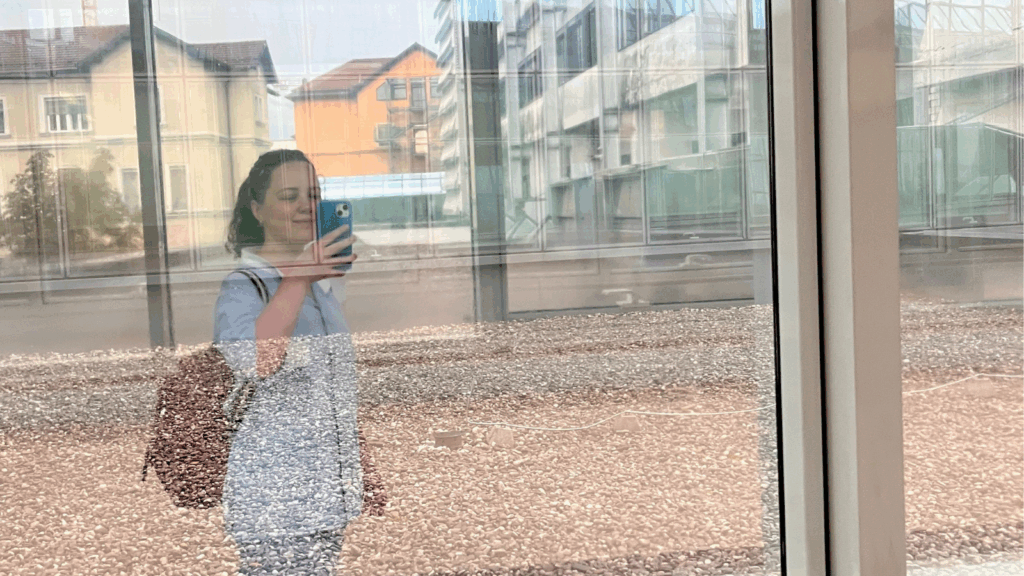
Her practical experience includes working in the field of Hemato-Oncology, where she specializes in administering chemotherapy and caring for and monitoring patients after bone marrow transplants, as well as those suffering from various types of cancer. Her dedication and experience in the care of these patients reflect her deep sense of mission for the welfare of others. During her research visit, Milena worked in various departments at the Institute of Oncology at the University Medical Centre Ljubljana under the mentorship of Assist. Prof. Blaž Grošelj, MD, PhD, and closely collaborated with Senior Nurse Miladinka Matković, who organized her rotations.
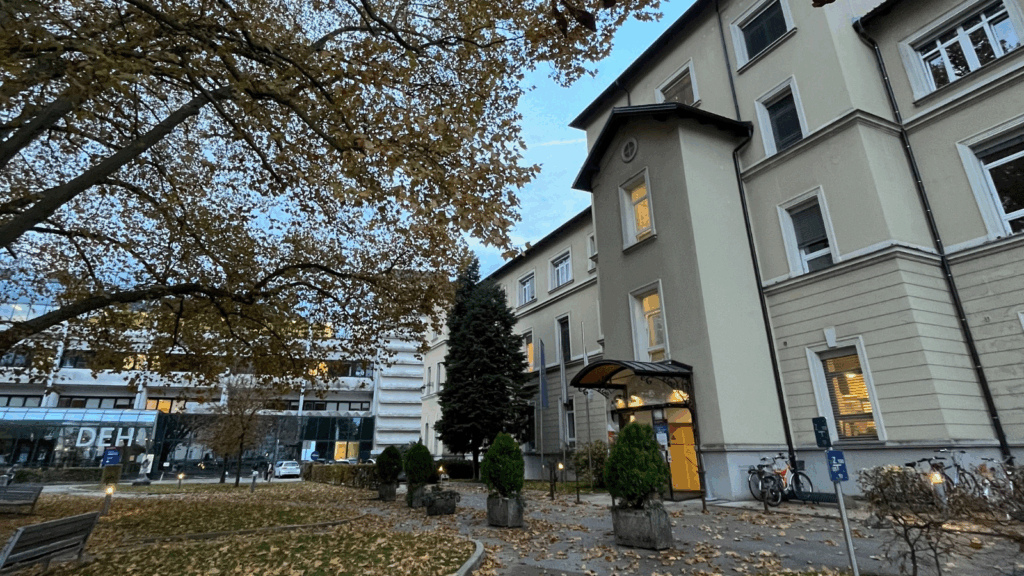
In the following, read her portrait.
An ASEF Fellow’s Perspective: I Have Two Homelands, I Love Them Without Borders
Milena Zupanc’s story begins in Slovenia even before her birth, specifically in Moravče, Rafolče pri Lukovici, Zalog pri Cerkljah, and Kovor pri Tržiču, the places of origin of her grandparents on both her mother’s and father’s sides. “There are eight of us at home. I have five brothers, and I am truly grateful for my family,” Milena recounts. Including extended family, there are about forty of them in Argentina. Milena emphasizes that they have preserved their Slovenian identity precisely because of their family.
I am especially grateful to my parents and grandparents for persisting and instilling in us the love for Slovenian heritage, language, songs, faith, and community.
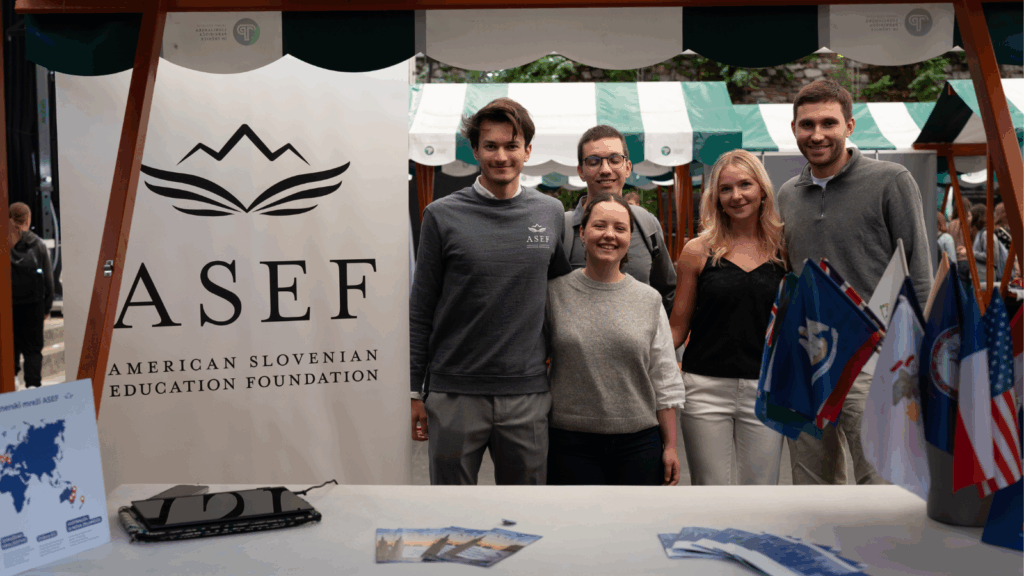
Her native language is Slovenian, and at home, they speak both Spanish and Slovenian. In addition to attending Argentine primary school during the week, she attended Slovenian school every Saturday from the age of three to seventeen, where she learned about Slovenian literature, history, values, and traditions. The Slovenian community in Argentina remains highly developed and active. Today, Milena is an active member of the Slovenian community Naš Dom, where she leads a group of young men and women named Mladci in Mladenke, passing on the love for Slovenian traditions and customs, striving to leave a mark on their hearts. The community has existed for 80 years, since her ancestors arrived in Argentina as refugees after World War II. Her work in the community reflects her commitment to preserving cultural roots and the importance of passing them on to future generations. “The foundations of our community are faith, family, the Slovenian word, and love for the nation,” she emphasizes. Young people continue this mission.
We gather in Slovenian homes. I used to sing in the choir or dance in the Mladika folklore group, I played volleyball, went to camps, and attended the Slovenian Holy Mass every Sunday. We do all of this out of love for Slovenia.
Research Visit and Comparison of Healthcare Systems
Milena learned about the ASEF Visit Slovenia fellowship program from previous fellows and sought to use it to broaden her professional perspective. She began her research work in the last week of August. Under the mentorship of Assist. Prof. Blaž Grošelj, MD, PhD, and in close collaboration with Senior Nurse Miladinka Matković, she rotated through various departments at the Institute of Oncology: the Department of Malignant Lymphomas, the Day Hospital and Chemotherapy Outpatient Clinic, the Department for Various Tumours, the Radiotherapy Department, and the Palliative Care and Nutrition Department.
In Argentina, there is no difference between secondary-level and registered nurses. We all perform uniformly; despite having different competencies, we perform the same tasks. The only difference is in the salary. Here in Slovenia, the difference is more noticeable – each one has their own competencies that do not overlap. The work is then quite well-organized.
She also noticed a difference in schedules – in Argentina, they work shifts, while in Slovenia, nurses can have a different schedule every day. “Furthermore, holidays and absences are better regulated in Slovenia, which indicates a greater emphasis on the well-being of employees,” she adds. Regarding medication, she did not notice major differences, as the same protocols are used as worldwide. “This experience gave me a broader professional and personal view and encouraged me to think about possible improvements.”
Experiencing Slovenia: Máte Tea, Autumn, and a Coastal Accent
Milena described Buenos Aires as a noisy city, full of life, where dinner is served only after 10 PM. “Dinners in Argentina are usually pleasant, family affairs,” she says, adding that besides Argentine dishes like empanadas and asado, they also maintain traditional Slovenian meals — goulash, roast meat, sautéed potatoes, and stuffed peppers. In contrast to noisy Argentina, Milena experienced Ljubljana and the whole of Slovenia as peaceful, where time almost stands still. Her favourite season — autumn — captivated her with its wonderful colours.
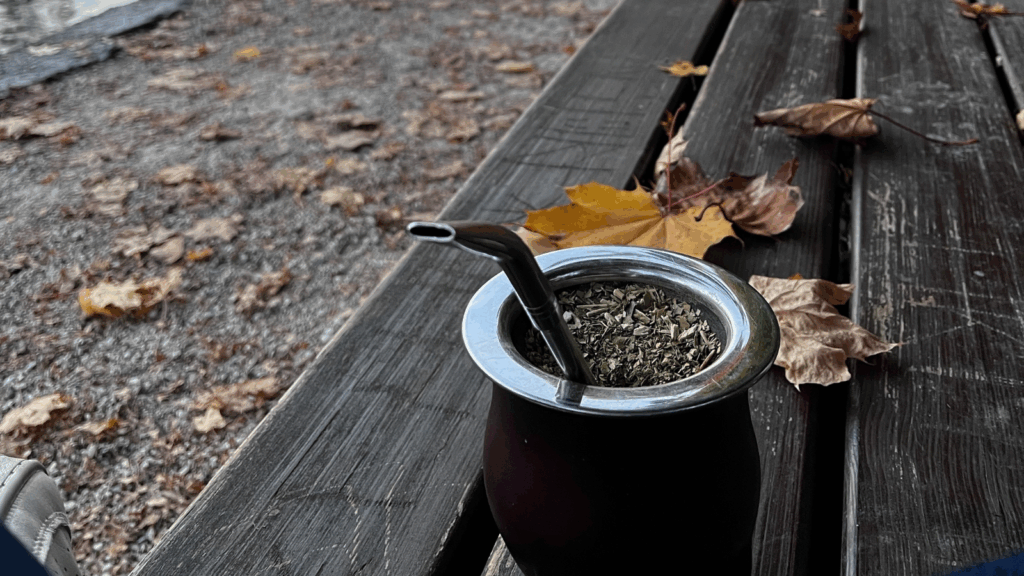
Every time I walked through the parks and streets, I felt as if time stood still, and I filled my eyes and heart with the beauty of autumn.
After finishing her work at the Institute of Oncology, she took time for exploration. “I took the typical Argentine máte tea, which is drunk from a special cup made of gourds, a book, and headed to Tivoli Park, to Šmarna gora, Rožnik, Golovec, and also stopped and admired various parts of the city where the Ljubljanica River flows.” She often climbed Ljubljana Castle to watch the sunset.
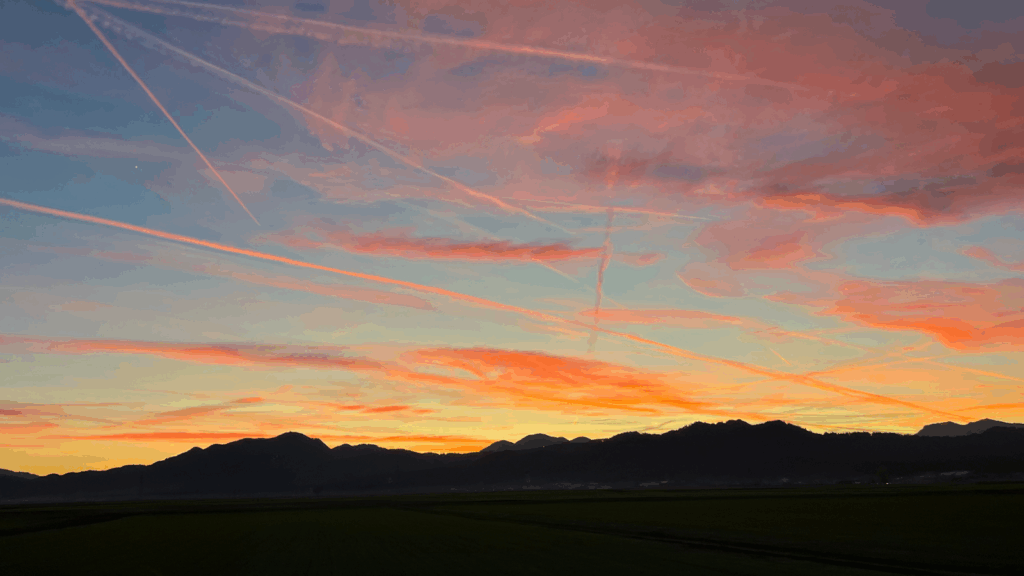
She also visited Maribor, where she participated in the Maribor Science Festival organized by the Maribor Experiment Centre, as well as Piran, Bled, Novo Mesto, Stična, Kranj, and Zalog pri Cerkljah. “Among the mountains, rivers, sea, lakes, and various paths, I always stopped to admire not only nature but the entire creation, the memory of family history,” Milena enthusiastically shares. Due to her fluent knowledge of Slovenian, she also had an amusing anecdote:
Because I speak Slovenian fluently, people don’t realize that I’m not from Slovenia. Until I mention that I come from Argentina. They even think I’m from the Slovenian Coast (Primorska), because the melody of my speech is more similar to Italian. Some even tell me that it looks like I sing when I speak.

Milena Zupanc will conclude her visit to Slovenia during the upcoming holiday season by visiting her relatives, which symbolically represents a complete circle for her.
As my visit is slowly coming to an end, I can say that I received even more than I expected. I got to know life in my second homeland, the one from which my roots originate. Once I heard a song that said: ‘I have two homelands, I love them without borders,’ and this verse encompasses everything I feel today.
Future and Advice for Future ASEF Fellows
Milena advises future ASEF Fellows to apply to the program without hesitation. “This is an exceptional opportunity for personal and professional growth, for learning new ways of working, and for discovering your roots and the culture you come from,” she emphasizes. Personally, the experience gave her new knowledge, self-confidence, friendships, and a sense of belonging.
Each one of us is given a talent, a calling, something that makes us unique. It is important, however, that we learn how to use that gift for others, how to share it and contribute to the community with it. The ASEF program allows us to do just that.
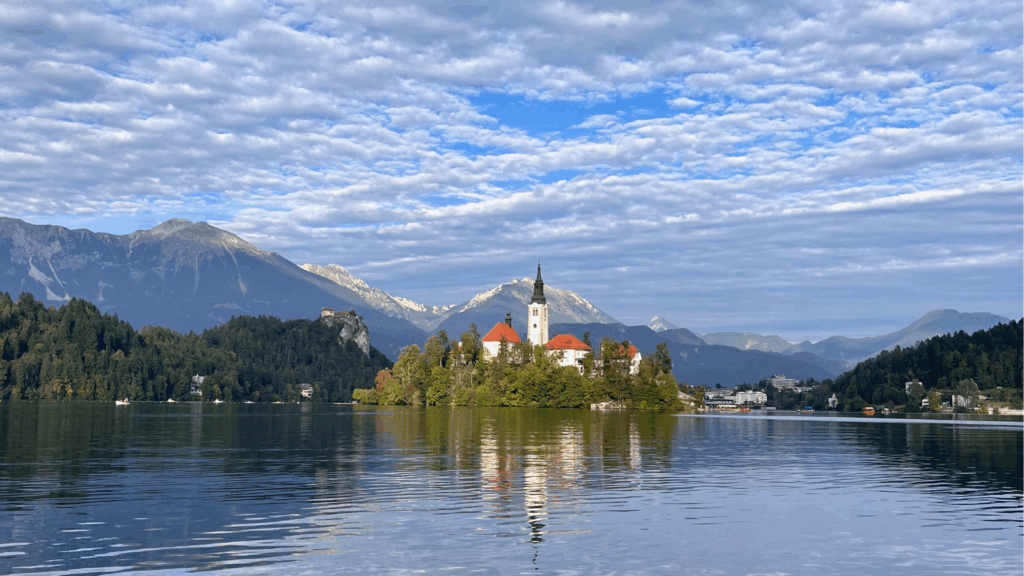
Regarding the future, Milena does not yet know whether she will stay in Slovenia, Argentina, or go elsewhere. She is determined to pass on all the knowledge she has gained. She wishes to have a family in which she would raise her children “with love for God, Slovenia, the mother tongue, values, and customs, because they are part of my history and identity.”
Milena’s Favourite Slovenian Things
- Favourite Slovenian dish: Goulash with polenta
- Favourite word: Hvala (Thank you)!
- Favourite city: It’s hard to decide – Ljubljana, Bled, Moravče, Piran.
- Favourite music: Slovenija od kod lepote tvoje (The Avsenik Brothers Ensemble), Bo moj vnuk še pel slovenske pesmi (Boris Kopitar and Brendi) and Siva pot (Aleksander Mežek).
We are very proud of Milena and her academic and personal successes achieved during the ASEF Visit Slovenia programme. We wish her all the best in her future career and hope to see her again soon!
We also thank the Government Office for Slovenians Abroad and all ASEF donors for supporting the work of ASEF and our Junior Fellows.
Listen to Milena Zupanc on the Evropa osebno Podcast
Milena Zupanc was a guest on the radio show Evropa osebno on Val 202 (RTV Slovenija).
You can listen to the full conversation here.









